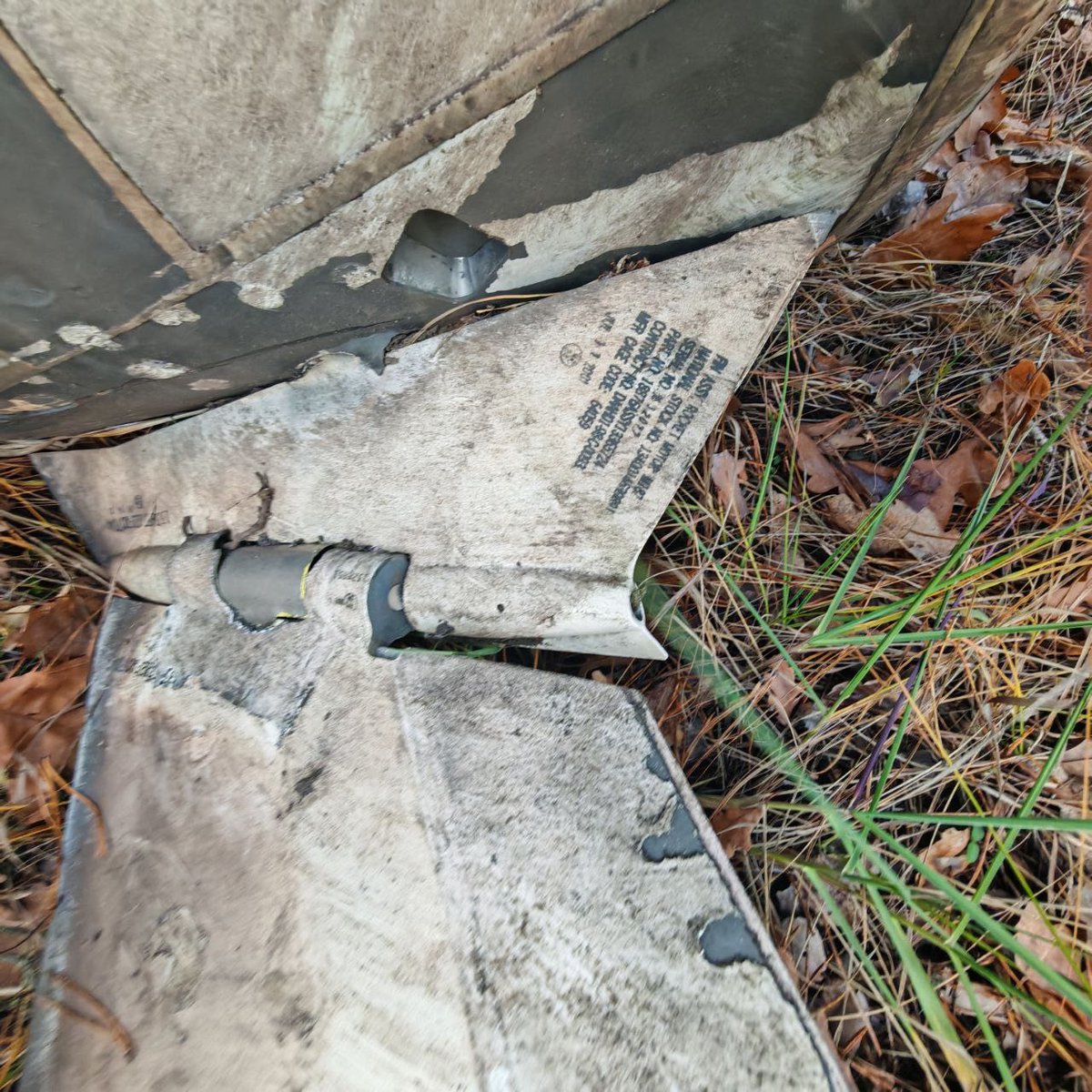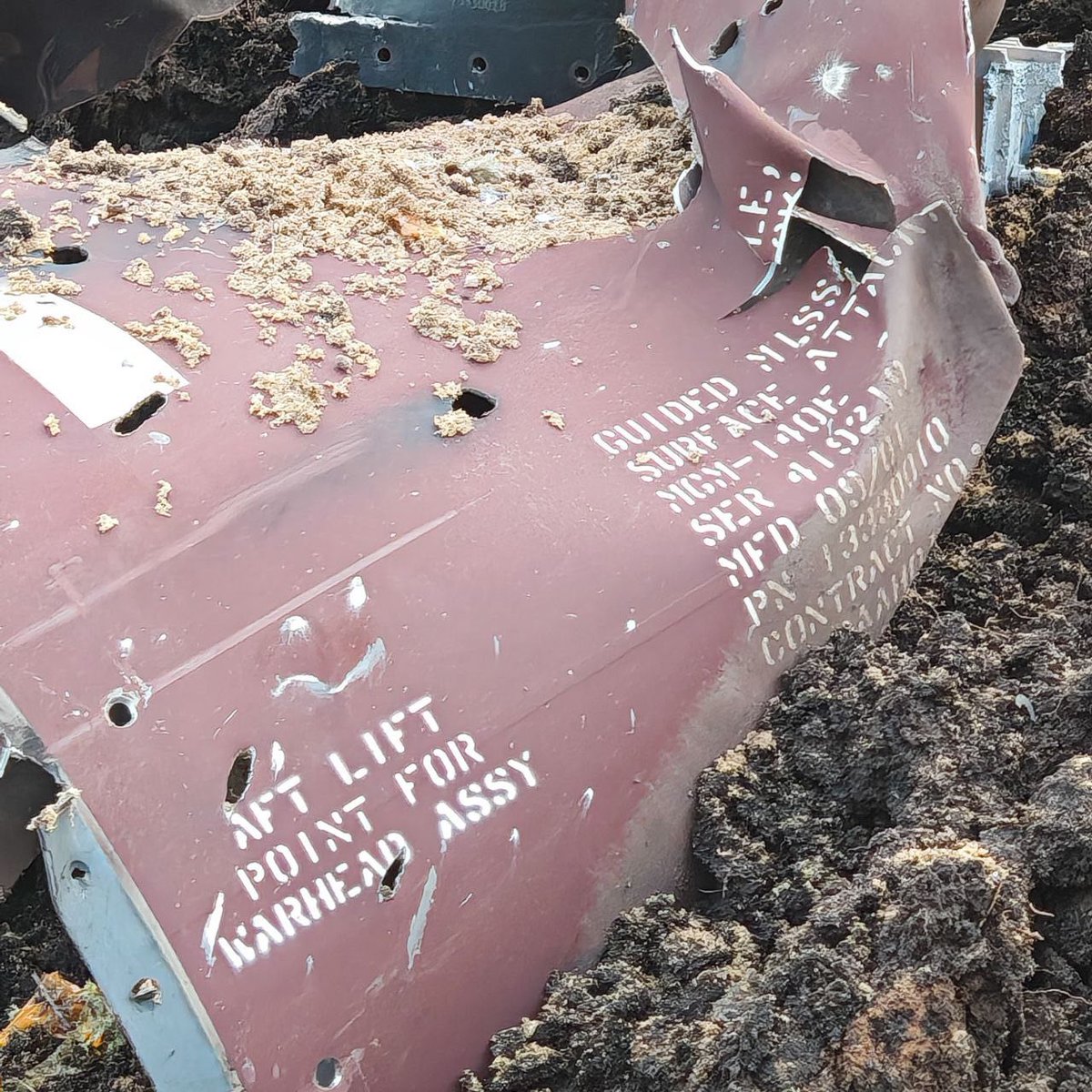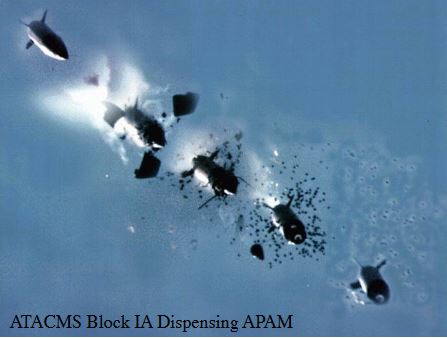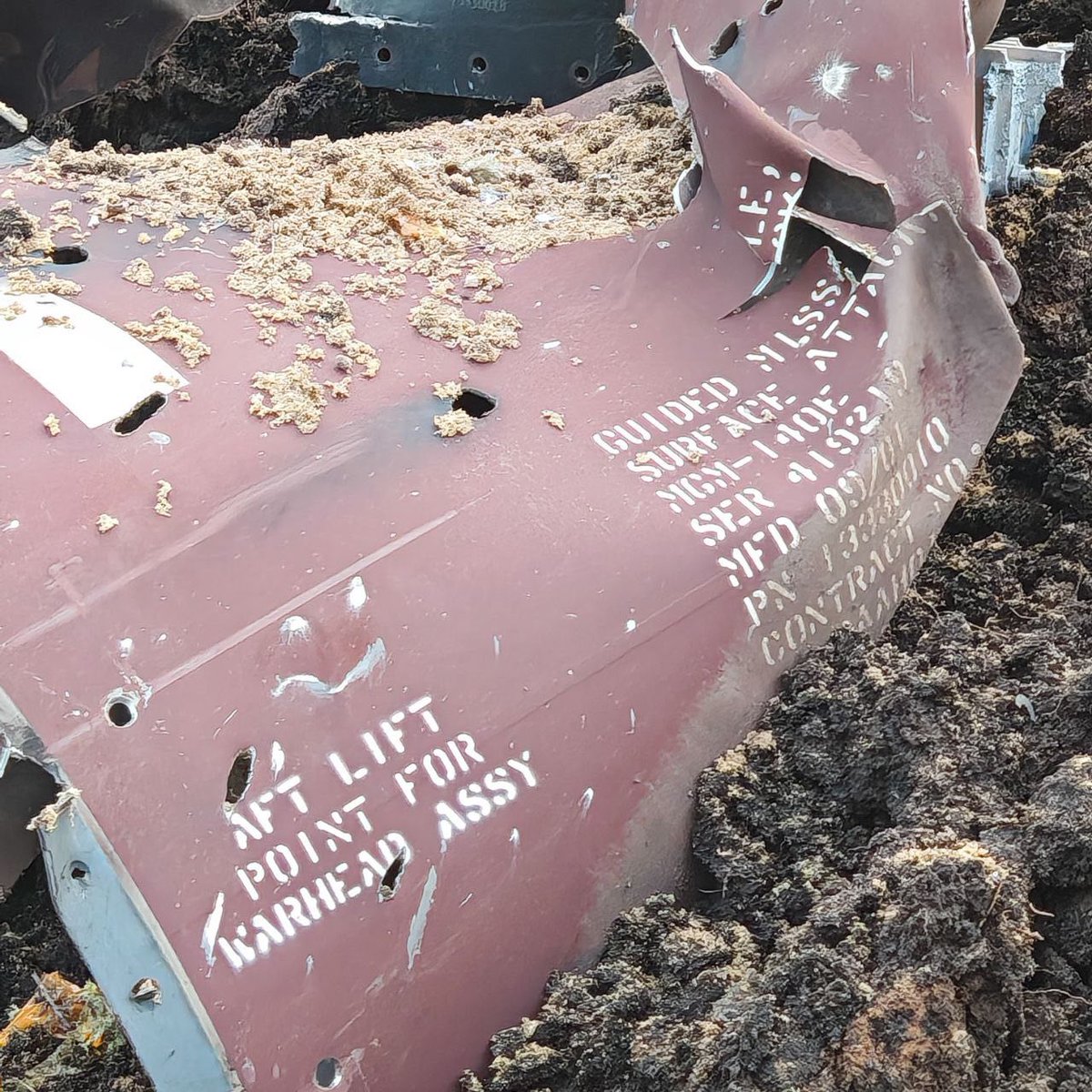On March 12, the Biden Admin finally announced a new Drawdown package for 🇺🇦, ending an 11 week moratorium.
For 11 weeks they maintained they would not provide any new aid. They watched as ammo ran out. They watched as Avdiivka fell. Then they reversed course.
Why?
1/109
🧵
For 11 weeks they maintained they would not provide any new aid. They watched as ammo ran out. They watched as Avdiivka fell. Then they reversed course.
Why?
1/109
🧵
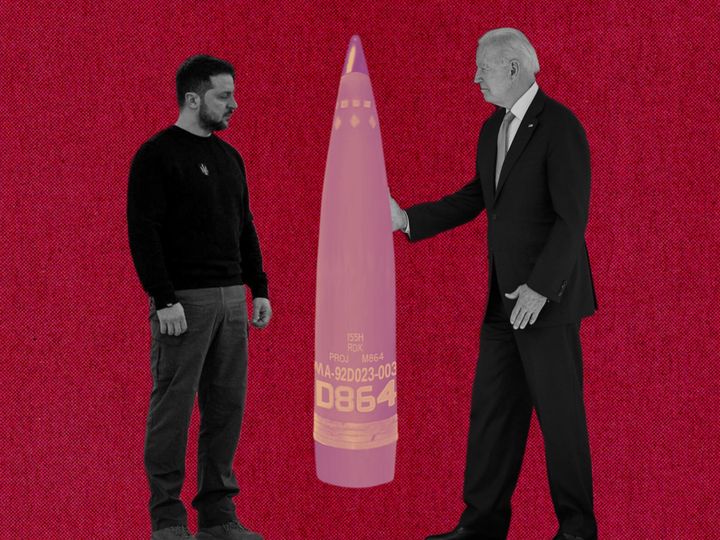
This thread is on US Security Assistance to Ukraine (specifically Presidential Drawdown Authority), a topic I have been covering for 2 years now. There is no TL;DR. This is a complicated subject that I hope I have made understandable for you. 2/109
Long time followers of this account will already know that after the $300 million March 12 announcement, there is now $3.9 billion in Drawdown Authority remaining, which the Biden Admin again maintains they cannot use. This thread will shatter their position. 3/109
US military aid to 🇺🇦 flows primarily through 2 authorities: Presidential Drawdown Authority (PDA) & the Ukraine Security Assistance Initiative (USAI). PDA permits the emergency transfer of defense articles (ammo, weapons, equipment) from US stocks to foreign countries. 4/109 

USAI allows the US Department of Defense (DoD) to procure defense articles from industry or partner countries. USAI commitments include 12 NASAMS batteries, which Raytheon has been contracted to produce. Stay tuned for a future thread on NASAMS procurement. 5/109 

To date, Congress has appropriated $18.9 billion for USAI. All of these funds have been committed to specific procurement programs, though $6.6 billion of those dollars are still not yet obligated/contracted. Below you can see what the other $12.3 billion was spent on. 6/109 

With all USAI funds exhausted, PDA is the Biden Admin's primary remaining authority to provide military aid to Ukraine. It is also the more important of the two programs, since it gets Ukraine what it needs right away.
How does PDA work though? 7/109
How does PDA work though? 7/109
Section 506 of the Foreign Assistance Act allows the President to direct "the drawdown of defense articles from the stocks of the DoD", "of an aggregate value of not to exceed $100 million in any fiscal year." s. 652 requires that Congress be notified with a justification. 8/109 

So PDA allows a cumulative (and global) total of $100 million worth of ammo, weapons or equipment to be transferred in emergencies to foreign countries. It is not $100 million for each country, it is $100 million for all countries combined in any given fiscal year. 9/109
The value of defense articles is their net book value, not the acquisition or replacement cost. Net Book Value is the acquisition cost minus depreciation. Old articles can be valued at as low as 5% of acquisition cost, while brand new ones wouldn't be depreciated at all. 10/109 

The DoD cannot unilaterally value defense articles at $0. Even excess defense articles have an assessed value, as inventory that is excess to DoD requirements may still have willing buyers. This is all established by DoD Financial Management Regulations. 11/109 

Of course $100 million doesn't go far in a conventional war, so Congress increased this s.506 cap on the value of drawdowns via the previous Ukraine Supplemental Appropriations & Continuing Resolution bills. Combined, the cumulative FY22 & FY23 total was $25.5 billion. 12/109
This is complicated by the fact that during FY22 & FY23, certain defense articles provided to Ukraine were overvalued by incorrectly using replacement cost rather than net book value. On June 20, 2023 the Pentagon announced that this overvaluation totalled $6.2 billion. 13/109
So by March 31st, when the Comptroller reissued guidance on the valuation of defense articles, while they thought $19.9 billion had been drawndown, the real number was $13.7 billion. Though initially the error was thought to be $3b, by June it was determined to be $6.2b. 14/109 

Rather than re-issuing a correct valuation for each drawdown up to March 31st, the DoD took the position that they had already notified Congress of that $6.2 billion worth of drawdown authority being committed to Ukraine, and were therefore free to execute it. 15/109
This is a very dicey interpretation of the law, and the DoD Inspector General is actively investigating the matter. It would have been safer for them to immediately re-notify Congress of the intention to drawdown defense articles worth the entire $6.2 billion. 16/109 

The notification of Congress is the key component of a drawdown, because while the authority is capped and expires annually, once a drawdown is notified to Congress, there is no time limit on it's execution. The defense articles don't need to be delivered immediately. 17/109
This is what has allowed the Biden Administration to continue drawdowns in FY24, despite Congress not increasing the FY24 PDA cap above the default $100 million. That $6.2b in "restored" PDA being executed in FY24 is legal, but the underlying interpretation is suspect. 18/109
As I previously noted, PDAs #2-#34 were not individually re-announced with correct valuations, so by the end of July, the FY23 PDA cap of $14.5 billion had been hit. Since August, they have been drawing on that $6.2 billion in executable authority. 19/109 

Since Dec 27, 2023, when PDA #54 was announced, the amount of remaining executable authority had been $4.178 billion. It is now $3.878 billion, after PDA #55, worth $300 million, was announced on March 12, 2024. 20/109 

Drawdowns can come from DoD stocks that are in inventory for their own requirements. It doesn't have to be surplus or excess equipment. Though no such requirement to do so exists anywhere in US law, the Department of Defense naturally wants those stocks to be replaced. 21/109 

Congress has therefore appropriated funds ($25.9b to date) to procure replacements for the defense articles that have been granted to Ukraine via drawdowns. Like USAI, all of this money is already committed (exhausted) to specific programs, with $7.9b not yet obligated. 22/109 

So Congress authorized $25.5 billion in PDA, and $25.9 billion in "replacement funding". Though that might seem logical, it doesn't explain how the replacement funds have been exhausted already when there is still $3.9 billion in drawdown authority remaining. 23/109
I will reiterate again that the $6.2 billion valuation error doesn't allow the Biden Admin to exceed that $25.5 billion PDA Cap. Congress has actually only been notified of $23.725 billion in drawdowns, as the Biden Admin allowed ~$2b in authority to expire in FY22. 24/109
So only $19.847 billion has been committed to Ukraine via PDA but replacement funds in the amount of $25.9 billion have already been exhausted. The last $1.07 billion in replacement funding was committed in December, mostly for Army Missile & Ammunition procurement. 25/109 

So why does it matter that there are no "replacement funds"? Well, because the Biden Admin's reason for not using their remaining PDA was that they could not replace the drawndown equipment for Ukraine until Congress appropriated additional replacement funds. 26/109
As I already noted, they maintained this position for 11 weeks, and actually still maintain it today. Ukraine should not expect President Biden to authorize any additional Drawdowns for them. PDA #55 was a one off situation, according to them. 27/109
When the DoD commits replacement funds to a specific program or purpose, that is done with an estimate of how much money will be required to fund that activity. When contract negotiations are concluded, sometimes the cost comes in below that estimated budget. 28/109
In those cases, that money is then returned to the replacement fund so that it can be recommitted to other unfunded requirements in support of Ukraine. The DoD has executed 6 such transfers in the past, covering many different programs and totalling ~$1.6 billion. 29/109 

That's $1.6b that was committed, then returned to the replacement fund because contracts were negotiated under the estimated budget, and then recommitted to other priorities. This is a normal process that happens with the regular DoD base budget; nothing underhanded. 30/109
So according to the Biden Admin, this latest $300 million PDA is being backed by $300 million in cost savings that has just been transferred back to the replacement fund, which can be used to buy replacements for the defense articles provided to Ukraine in PDA #55. 31/109 

This brings us back to the $3.9 billion gap between the remaining drawdown authority to be executed, and the replacement fund, which is now again at $0. How did that come about when the appropriated replacement funds actually exceeded the amount of Drawdown authority? 32/109
This is what the Biden Admin doesn't want you to know. The $25.9b in "replacement funds" is used not only for replacement of defense articles, but to expand munitions production and reimburse the cost of services provided to Ukraine both by the DoD & US allies as well. 33/109 

The replacement fund also covers the costs of executing the drawdowns: all the expenses incurred to transport the large quantities of defense articles to Ukraine. In total, ~$2.1 billion has been spent on PDA execution and other Operations & Maintenance (O&M) expenses. 34/109
That $2.1b doesn't include the money invested into the defense industrial base to expand production capacity at key facilities, such as the Iowa Army Ammunition Plant. Which leaves a lot less money left over to pay for procurement of replacement munitions and equipment. 35/109 

The Biden Admin's stated position: that they can't execute drawdowns without accompanying replacement funds, suggests that they expect to replace everything provided to Ukraine $ for $ & 1 for 1 with new equipment. This contradicts the DoD's procurement policies though. 36/109
The USAF's acquisition chief explains that they procure new equipment based on the capabilities needed, not on the current inventory of the legacy system being replaced. New systems might be procured in larger or smaller numbers. Either way, it's not $ for $ or 1 for 1. 37/109
It's worth emphasizing that even for articles with specific inventory requirements or acquisition objectives, such as artillery shells, a new shell costs substantially more than a depreciated shell from inventory. The average FY23/24 cost of a new M795 is approx $1,050. 38/109 

Recall that $2.711 billion has been spent to replace 155mm ammo. That works out to over 2.5 million shells. Which is the rough number of how many have been provided to Ukraine. Those shells were not worth $2.7b though. Old M107s for example have a Net Book Value of 30%. 39/109 

The shell example is a perfect illustration of how PDA and replacement funds can't be expended at a 1:1 ratio. $2.7b was spent to replace 2 million shells worth a fraction of that. New defense articles are almost always going to cost more than old, on an individual basis. 40/109
To recap:
There's no legal requirement to replace defense articles.
DoD policy is that new systems aren't required to be procured to replace old ones 1 for 1, or at all.
The replacement fund never had enough money to replace 1 for 1 or even dollar for dollar anyway. 41/109
There's no legal requirement to replace defense articles.
DoD policy is that new systems aren't required to be procured to replace old ones 1 for 1, or at all.
The replacement fund never had enough money to replace 1 for 1 or even dollar for dollar anyway. 41/109
The Biden Admin has also not made any effort to have sufficient replacement funds appropriated. Their September 2022 Supplemental Request asked for a PDA cap of $3.7 billion, but only $1.5 billion in replacement funding. 42/109




Congress enacted in the Continuing Appropriations and Ukraine Supplemental Appropriations Act, 2023 the exact same amounts. So the Administration began the 2023 Fiscal Year with $2.2 billion less in funds than the amount they intended to drawdown from stocks. 43/109




When they submitted their Supplemental Budget Request for the rest of FY23, they asked that the PDA cap be raised by $7b to $10.7b, but only asked for an additional $7.7 billion in replacement funds. So $9.2b in funds for $10.7b in authority, for all of FY23. 44/109



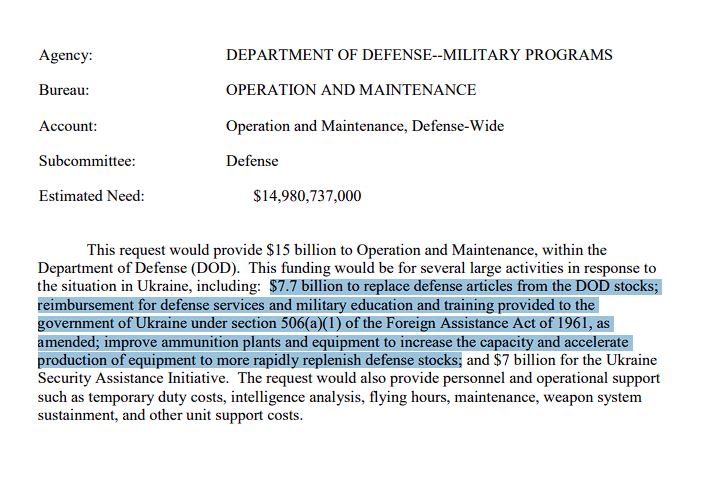
Congress enacted in the Consolidated Appropriations Act, 2023 increased amounts: $14.5 billion in PDA, and an additional $11.88 billion in replacement funds, for a total of $13.38 billion. So if it weren't for Congress, the current situation would be even worse. 45/109



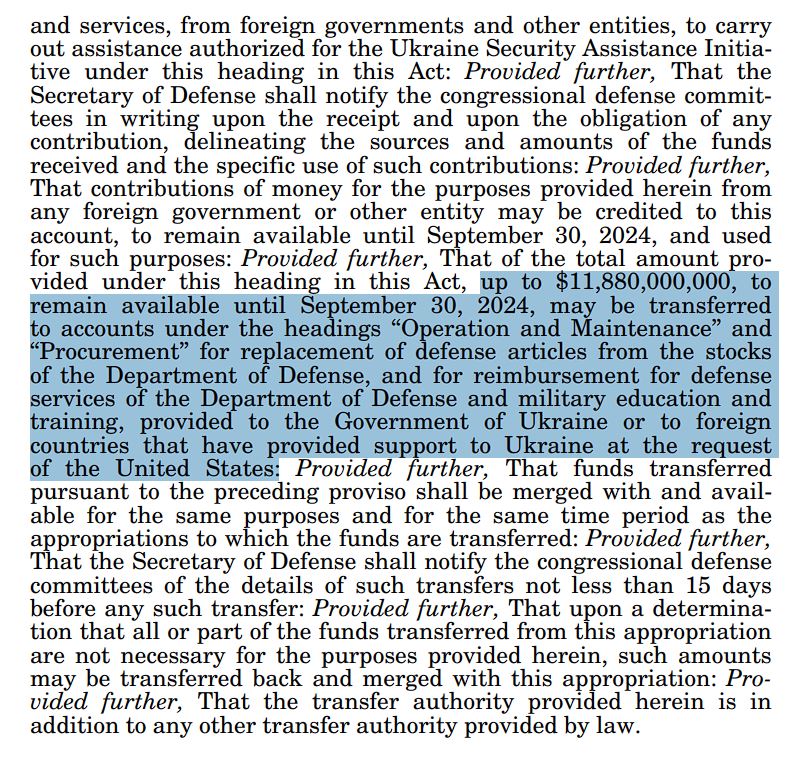
The Biden Administration continues to blame Congress, even though they themselves are responsible for creating this disparity in PDA and replacement funds. The purpose of a budget request is to articulate the authorities & funds the Admin needs to execute their policies. 46/109
Congress has been pushing the Biden Administration since the beginning of the war to back a strategy that will equip Ukraine with the necessary weapons for them to win the war. They have continued to decline to do so. 47/109 

If they had, then Congress would have been more than willing to appropriate the funds to support that strategy. It's also worth remembering that the President's Democratic Party controlled both chambers of Congress when all 4 Ukraine Supplementals were passed. 48/109 

Though understanding this historical context is critical, we can't change the past, so let's come back to the present.
The Pentagon conceded in December that they could continue drawdowns, but they & the rest of the Biden Admin were adamant that they wouldn't.
But why? 49/109
The Pentagon conceded in December that they could continue drawdowns, but they & the rest of the Biden Admin were adamant that they wouldn't.
But why? 49/109
Their sole argument is that continuing drawdowns without any replenishment funds would be an unacceptable risk to the readiness of the US Armed Forces. This argument doesn't make any sense though. 50/109
As previously stated, PDA is used primarily for defense articles that are NOT excess to requirements. Thus, a reduction in readiness is inherent in almost all drawdowns. A readiness and O&M budget impact assessment is part of Step 3 in the Drawdown process. 51/109 

It's not the absence of replacement funds that creates the readiness impact, it's the drawdown itself. Whether funds are available or not, there will be at least a temporary impact on readiness. Defense articles can't be replaced instantly, they have to be procured. 52/109
Long time followers of my account will know that the glacial pace of Ukraine contracting has been a huge problem. Even with the special, rapid contracting authorities provided to the DoD by Congress to support Ukraine, procurement is still a very slow process. 53/109
In their first update on contracting, the DoD disclosed that only 25% of committed USAI funds had been awarded. For PDA replacement, only 17% of committed funds had been awarded. Note that they expected production times of 2-3 years, which only begins after an award. 54/109 

So if the DoD had more funds available, they would still take months to commit them via a reprogramming notice to Congress, then months more to issue the contract, and finally it would takes years for those defense articles to be produced & delivered to the DoD. 55/109
The absence of additional funding is therefore not impacting readiness of US Forces today, as those funds would be spent to procure defense articles produced far in the future. If Ukraine is sent more Bradleys, there is a 12 month production lead time to replace them. 56/109 

Another example: 155mm M795 shells.
US Army & USMC shells contracted this May, will not begin delivery until May 2027. That's how bad the backlog is. Even with the already scheduled production increases (at least 70,000/m by year end), the lead time will still be long. 57/109


US Army & USMC shells contracted this May, will not begin delivery until May 2027. That's how bad the backlog is. Even with the already scheduled production increases (at least 70,000/m by year end), the lead time will still be long. 57/109


For PAC-3 MSE, the missiles that were scheduled to be contracted in December 2023 won't start delivering until May 2026. MSE is the only Patriot missile the US Army is currently procuring, so even if Ukraine is given a PAC-2, it can only be replaced by a future MSE. 58/109 

Lockheed is already increasing MSE production, but there will still be a backlog for the Army's own orders. If the Army had additional funds to procure replacement missiles, they will still have to wait for them. The next contract award likely won't be until Dec anyway. 59/109
So again we return to the question: why not utilize the remaining $3.9 billion in PDA now to send Ukraine critically needed ammo & equipment? The President himself says he's confident the Supplemental will pass, so why do they need to wait? 60/109
They don't need to wait, and in fact, they have not waited in the past. Between the 3 PDAs listed below, and an earlier $60 million PDA in Aug 2021, the Biden Admin drewdown $810 million worth of defense articles before they had any appropriated replacement funding. 61/109 
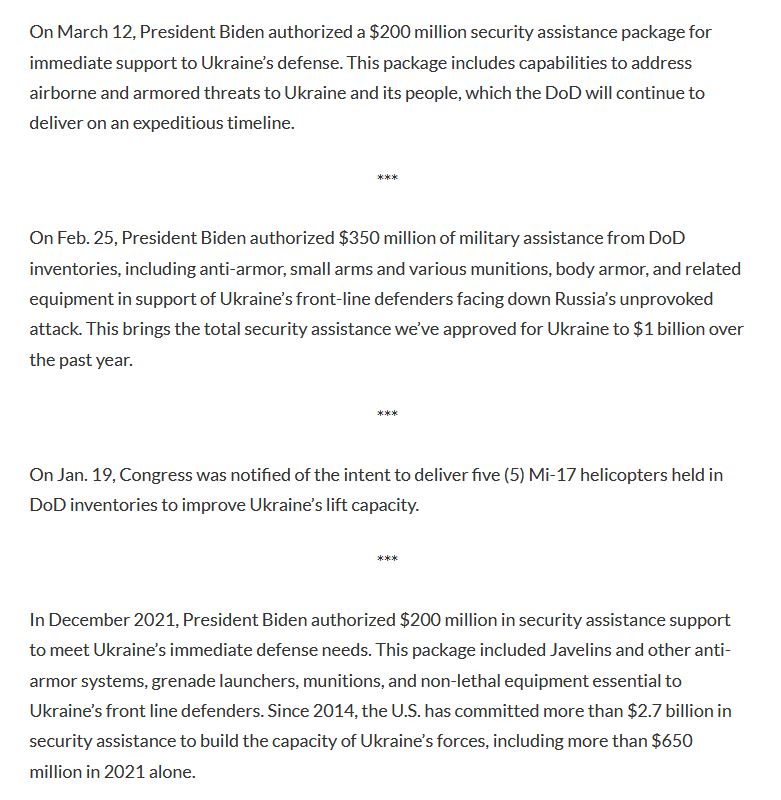
So not only have they admitted that they can execute drawdowns without replacement funding, they have actually done so. They didn't refuse to provide Ukraine any assistance until Congress appropriated funding, they recognized the emergency and took action. 62/109
Further to that, the final drawdown, on Dec 27, worth $250 million, was after the last $1.07 billion in replacement funds had been committed, on December 15. So both at the outset of the war, and just last year, they have done what they are currently refusing to do. 63/109 

Surely though, since they are so adamant that Congress provide them with additional replacement funds, they have finally requested a sufficient amount?
Of course not.
Their FY24 Supplemental Request asked for a PDA cap of $7 billion & $18 billion in replacement funds. 64/109


Of course not.
Their FY24 Supplemental Request asked for a PDA cap of $7 billion & $18 billion in replacement funds. 64/109


So $18 billion for $7b in new authority plus the existing $3.9b. That needs to cover replacement costs, O&M expenses, and defense industrial base investments. Is that enough?
No.
How do we know?
Because they have told us. 65/109
No.
How do we know?
Because they have told us. 65/109
In July 2023, the House Oversight Committee was told the total replacement costs for everything drawndown up to that point (valued at $17.125b) was $30.6b. Recall that Congress has appropriated just $25.9b. So in July the DoD was already $4.7 billion short on funds. 66/109 

Since then there has been another $2.722b in drawdowns. So the Admin asked for $18b, minus $4.7b, leaving $13.3b to cover costs for $7b in new authority, $3.9b in existing authority, and $2.722b in past drawdowns. $13.3b in funds for $13.622b in PDA. They're still short. 67/109
The problem is of course even worse than that too. The assessed replacement costs in July were $30.6b, and as I already explained, not all of those $25.9 billion in funds are used for replacing defense articles. So the funding deficit is much larger than it appears. 68/109
If $17.1 billion in drawdowns generate replacement costs of $30.6 billion, then the replacement fund needs to be double what the PDA cap is at a minimum, in order to cover the replacement costs, the O&M expenses, and the DIB investments. 69/109
The DoD "will evaluate and request appropriate levels of funding required to replace equipment provided to Ukraine".
They have done the evaluation, but the requests submitted by the White House Office of Management & Budget to Congress don't match those evaluations. 70/109
They have done the evaluation, but the requests submitted by the White House Office of Management & Budget to Congress don't match those evaluations. 70/109

The entire Biden Administration is blaming Congress for not giving them enough funding, when they themselves created this situation by not fulfilling their commitment to Congress to request adequate levels of funding. 71/109
Congress already passed 4 Ukraine Supplementals; 3 of them exceeded the budget requests from the Biden Admin, so there was no opposition to providing more support to Ukraine. As I previously noted, Congress has consistently pushed the Admin to provide more aid to Ukraine. 72/109
It continues to get worse though. On March 11, @laraseligman of @politico broke the news that the DoD's assessed replacement costs for weapons drawndown to Ukraine had risen to $10 billion (from the aforementioned $4.7 billion in July). 73/109 

This was confirmed by the Pentagon the next day.
Remember that this is just the cost of the actual equipment replacement too. It does not include any of the Operations & Maintenance expenses or Defense Industrial Base investments which also need to be funded as well. 74/109
Remember that this is just the cost of the actual equipment replacement too. It does not include any of the Operations & Maintenance expenses or Defense Industrial Base investments which also need to be funded as well. 74/109

So with the Biden Administration's new supplemental request, they would only have $8 billion in funds to cover replacement costs for $10.9 billion worth of authority ($7b new, $3.9b existing), plus O&M expenses and the DIB investments. 75/109
That's $10 billion out of their $18b FY24 funding request covering costs that have accrued primarily from past FYs. Which means that this situation will only get worse as drawdowns continue. $10.9b in drawdowns could easily generate $22b in total costs; a $14b hole. 76/109 

The Biden Admin continues to ignore this reality though. When pressed further by @noahjrobertson about the genesis of the $10 billion hole, their excuse was that they didn't realize that it would be much more expensive to replace old, depreciated equipment with new. 77/109 

Now they did in fact ask for ~10% more replacement funds than PDA in their first 2 Supplemental Budget Requests, but it strains credulity that the Pentagon would actually come up with 10%. If that's true, then they are all deeply incompetent. But what if it's not true? 78/109 

What if the Pentagon gave them a higher number and they were overruled by the White House National Security Council and Office of Management & Budget, or even the President? Those are the possible explanations. I leave it to you to determine which is more likely. 79/109




So they initially came up with 10%, and they claim that by the second half of last year they determined they actually needed 20% more replacement funds than PDA. The reference to 3/4 Supplementals being done suggests he meant to say Oct-Dec 2022 though. 80/109



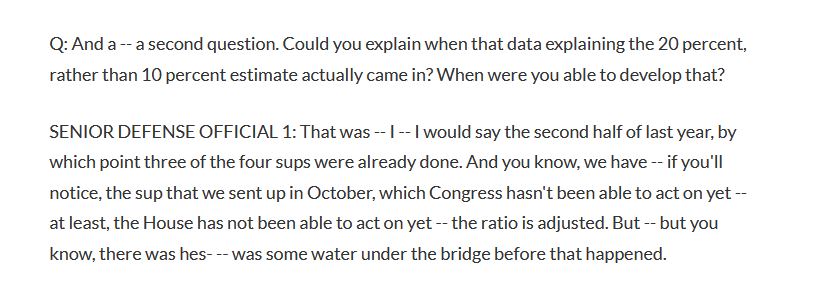
Regardless of when they reached that conclusion though, it's an absurd number. Recall that Supplementals 3 & 4 asked for LESS funding than PDA, not even 10% or 20% more. As I have shown, it will actually require double; 100% more funding than PDA, to cover all costs. 81/109
Yet in the same briefing that they acknowledge the $10 billion hole, the Pentagon duplicitously claims that: "the sup that we sent up in October, [...] the ratio is adjusted". Clearly they have been counting on nobody doing the math and calling them out on this. 82/109 

Ukraine has received just under $20b in drawdowns. A 20% premium on that equals $24b. Congress appropriated $25.9b in funds, and there is a $10b shortfall. That's an 80% premium. Which again, only covers replacement, hence a 100% premium to cover everything else too. 83/109
I know I said there was no TL;DR for this thread, and that's true, but there's 1 point that needs to be emphasized above all others: In July Congress was told there is a $4.7 billion shortfall in replacement funds, but the Biden Admin continued drawdowns until December. 84/109
So they drewdown from US stocks to support Ukraine, which they were and are correct in doing, but did so knowing they had no money left to buy replacement stock. During that time they pretended they had money when they didn't, and have blamed all of this on Congress. 85/109
Absolutely nothing has changed between December and today. For 11 weeks President Biden refused to authorize any Drawdowns and justified that decision with a lie. There was no money available in July, no money available in Dec, and there is still none available now. 86/109
Ukraine could have been receiving a steady flow of ammunition, equipment and supplies this whole time. Avdiivka may have held out if Ukraine wasn't so short of ammo, especially if that third tranche of 155mm DPICMs had been sent earlier. 87/109 

Now of course the Admin knows all of this. They were the ones who told Congress back in July about the shortfall in replacement funding. So what is motivating this dishonest narrative?
IMO, they are just making things up as they go along. They have never had a plan. 88/109
IMO, they are just making things up as they go along. They have never had a plan. 88/109
They predicted the invasion but took no action to deter it. Their first instinct was to allow Russia to take Kyiv & offer Zelensky a government in exile. They debated every increase in material aid for months or even years & nothing has been given in decisive quantities. 89/109
Once they submitted their full year Supplemental Request for FY24 they decided on using the exhaustion of funds as a way to pressure Johnson into passing the bill. The problem with this, as I have noted many times in the past, is that Johnson doesn't care about Ukraine. 90/109 

Saying that Ukraine running out of ammunition over & over again isn't a compelling argument for him. This should have been evident after a month, but the Admin has remained married to this strategy. They still maintain that Ukraine should not expect additional PDAs. 91/109 

Congress of course should have passed the Supplemental back in October. It includes not only essential aid for Ukraine, but for Israel as well, plus Taiwan, and critical investments in the US submarine industrial base too (which AUKUS is depending on). 92/109
The Senate has done their part, but the White House has only responded to Speaker Johnson's obstructionism by doubling down on this indefensible strategy. Rep McCaul noted that it's hard to sell more funding for Ukraine when Biden still refuses their requests for ATACMS. 93/109 

@RepMcCaul There may be a light at the end of the tunnel though. Johnson has said that the House will take up votes on foreign aid "immediately" once they return from recess on April 9. How that exactly plays out remains to be seen though. 94/109 

Passing the Senate's National Security Act, 2024, would be the fastest course of action, but is it the best?
There are significant shortcomings with this bill. To begin with, the s506 Drawdown Cap is only $7.8 billion ($800m higher than the requested amount). 95/109
There are significant shortcomings with this bill. To begin with, the s506 Drawdown Cap is only $7.8 billion ($800m higher than the requested amount). 95/109

Worse than that though, whereas $18 billion in replacement funds were requested, it only includes $13.4b. So after covering the $10b hole, there will only be $3.4b to cover $3.9b in existing & $7.8b in new PDA. So this bill sets the DoD up to go further into the hole. 96/109 

The bill does increase the amounts being directly appropriated to the Procurement accounts of the Services, which is good and necessary, but those funds can't come at the expense of the replacement account. The latter needs to be funded adequately. 97/109
So here's how we fix it. I'm not going to rewrite the whole bill or change the other sections, all that really needs to happen is for the numbers to adjusted for the following accounts:
PDA - $18b
Replacement fund - $56b
USAI - $6b
FMF - $16b
98/109
PDA - $18b
Replacement fund - $56b
USAI - $6b
FMF - $16b
98/109

The replacement fund is substantially larger, to account for the existing $10 billion hole, the existing $3.9b PDA, and the new PDA. This ensures that DoD can execute Drawdowns at no cost to their base budget and replace everything given to Ukraine. 99/109
I cut USAI because the Biden Admin has been very irresponsible in their use of these funds, and instead substantially increased the FMF available to Ukraine. This gives them the freedom to place FMS orders for what they want rather than what the DoD thinks they need. 100/109
I consider these to be minimum amounts to sustain successful Ukrainian defensive operations through to January 2025. I don't consider it likely that Congress will dramatically change the amounts already appropriated, so I see no point in making less realistic asks. 101/109
At a bare minimum, $34 billion in replacement funds are needed to make DoD hole by covering the $10b and the existing & new PDA in the current bill. That amount will just barely keep the lights on in Ukraine for the next year. Less PDA=higher casualties on the front. 102/109
Although amending the supplemental will take a little extra time, it is essential. The current amounts will not provide enough material support to ensure the Ukrainian Armed Forces remain an effective and intact fighting force into 2025. This bill has to be gotten right. 103/109
In the meantime, the Admin still has that $3.9b in PDA to draw on while Congress sorts this out. The Speaker of course cannot be trusted to actually take up the supplemental this week either. So they have to be ready to keep the drawdowns going. 104/109 

Refusing to now take up the supplemental in good faith carries considerable risk for Johnson though. He has MTG's motion to vacate threat looming, which Dems could vote for like they did with McCarthy, and more Republicans might sign the discharge petition (needs 218). 105/109 

History doesn't repeat, but it often rhymes. I want to close by sharing a frighteningly similar episode from US history:
"WASHINGTON, May 6—The Senate rejected today an Administration request for $266 million in additional military aid for South Vietnam." 106/109
"WASHINGTON, May 6—The Senate rejected today an Administration request for $266 million in additional military aid for South Vietnam." 106/109

Sounds awfully familiar doesn't it? Presidents Nixon & Ford had their own trials and tribulations with Section 506 of the FAA and Congress. 107/109 

The United States can't repeat the same mistakes they made 50 years ago with South Vietnam. The Biden Admin has been indecisive, and the US House intransigent. Ukraine has paid dearly in blood because of it. This is their opportunity course correct from the last 2 years. 108/109
Ukraine asks only for weapons and ammunition. It's up to the United States, NATO, and all other free, democratic countries to decide whether Ukraine will be able to join that community, or suffer the same fate as Saigon. 109/109




I hope that I succeeded in explaining this complex topic to you. Believe it or not, as I said with my ATACMS thread (pinned on my profile), an awful lot was left out. I'd appreciate it if you'd RT the thread, and follow myself & my colleagues @InsiderEng & @tochnyi for more.
https://twitter.com/701156462177947652/status/1777328492566471120
• • •
Missing some Tweet in this thread? You can try to
force a refresh




